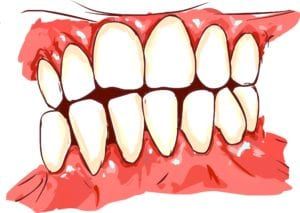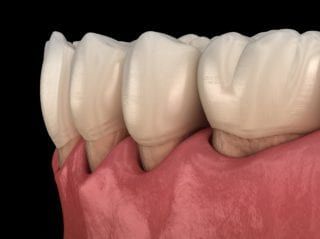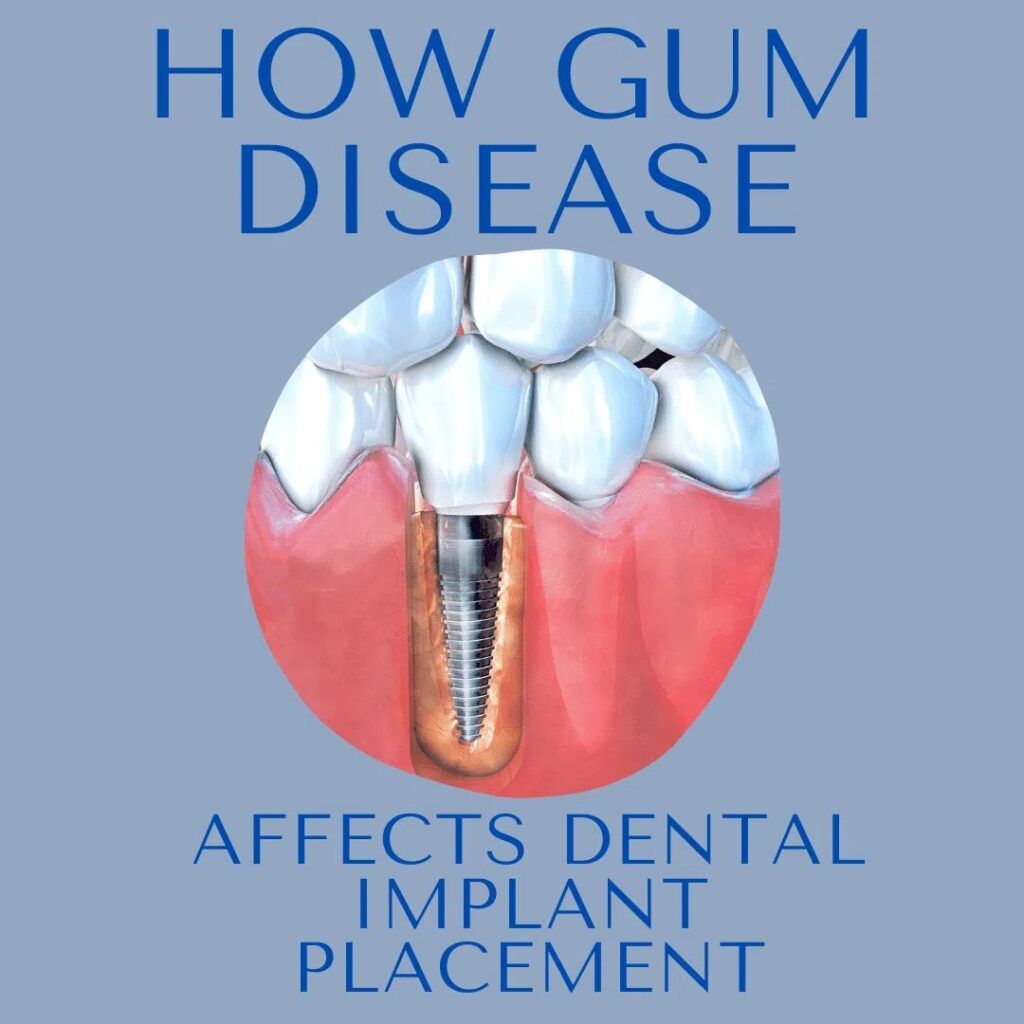Did you know that, according to the Centers for Disease Control and Prevention, as many as 47.2% of Americans over the age of 30 have some form of gum disease? The CDC also notes that the prevalence of gum disease increases with age. In fact, they note that 70.1% of Americans ages 65 and up have gum disease. When it comes to having healthy teeth, tooth decay and gum disease are the two main threats to your oral health.
There are two forms of gum disease known as gingivitis and periodontitis. While gingivitis is a mild form that is usually treatable, periodontitis is an advanced form of the disease that can eventually result in the loss of your teeth. Unfortunately many people who have gum disease are unaware that they even have the disease. While regular dental exams are the best way to diagnose gum disease, here are a few symptoms to watch out for:

- Gums that bleed easily while brushing or flossing
- Halitosis (bad breath)
- Tooth sensitivity to hot and cold temperatures
- Receding gums
- Gums that appear red or swollen
- Tenderness
When it comes to having dental implants placed, ideal candidates are those who are free from gum disease. As the statistics suggest, however, a large number of people looking to get dental implants probably have some form of gum disease. This raises the question of whether people with gum disease can have dental implants placed.
Unfortunately, there is not an easy answer to this question. There are a few key things that your implant dentist will need to evaluate to determine whether you are a good candidate for dental implants or not. This ultimately means that some people with gum disease can still have dental implants placed, while others may not be able to have them placed.
Here are two of the main things that your implant dentist will evaluate to determine if you are a good candidate for dental implants:
Bone Mass
Dental implants are placed into the jawbone where they will eventually fuse with the surrounding bone. This fusion is the key to implant success and there must be adequate bone mass for the implant to fuse with. In the later stages of periodontitis, however, bone loss can occur. In some cases, bone loss can be managed by placing a bone graft around the implant. In other cases, if too much bone has been lost, your dentist may not recommend dental implants.
Gum Recession

Your gums are one of the support structures responsible for holding your teeth in place. When a dental implant is placed, the gums will also be partially responsible for holding the crown, bridge, or denture in place. However, gum disease causes the gums to recede, or pull away from the teeth. The more the gums recede, the less support they provide. Not only that, but gum recession after implant surgery can expose the junction between the dental prosthesis and the abutment. This is both visually unappealing and can lead to peri-implant diseases.
If you have gum disease, you can expect to undergo treatment for gum disease prior to having dental implants placed. In some cases, your implant dentist may recommend gum disease treatment before deciding if you are a candidate for implants. As a general rule, the more advanced the gum disease, the less likely it is that you will be able to have implants placed. For this reason, it is important to have gum disease treated as soon as possible to allow for the placement of dental implants.

